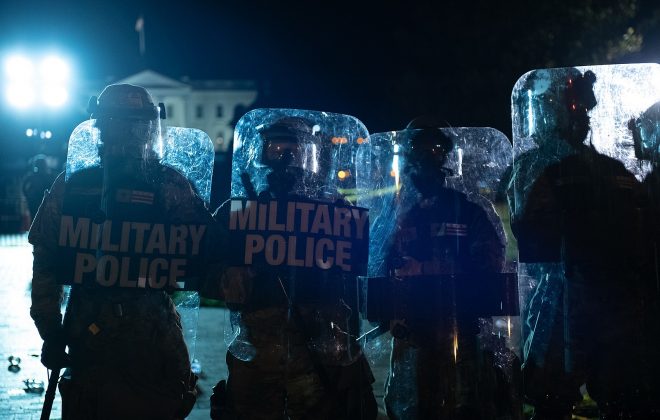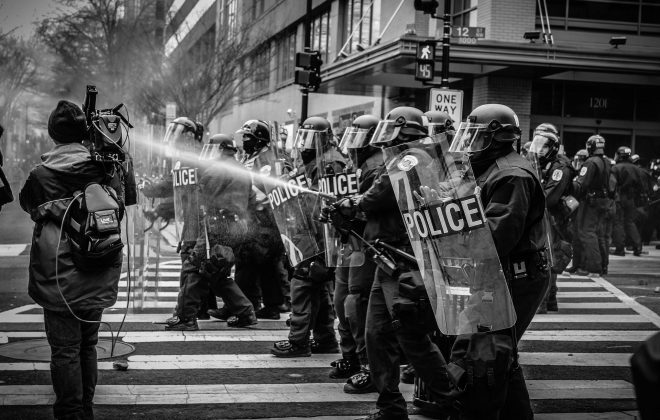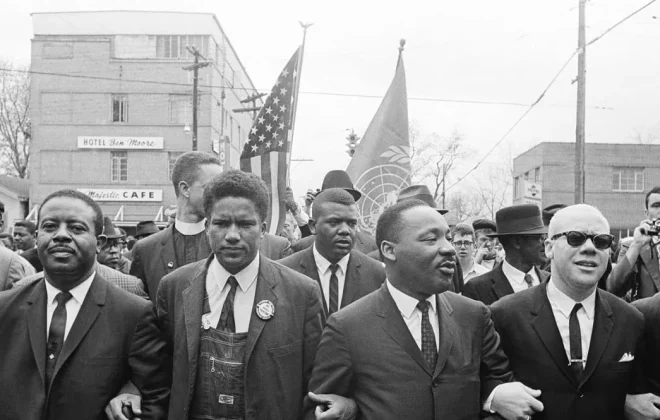Elections 2024: Police Accountability Is On the Ballot
Here’s NPAP’s guide to state ballot measures that could have a significant impact on our ability to hold police accountable. Some key issues we are watching this election include:
New fines and fees, which studies have found disproportionately impact people living in poverty, often trapping them in cycles of debt and incarceration. Levying and enforcing fines and fees distract law enforcement from their core responsibilities, focusing on debt collection instead of focusing on assuring real public safety.
Longer sentences, stricter parole, which exacerbate already overcrowded prisons without any added public safety benefit. Studies have shown that longer sentences do not improve public safety. Keeping people in prison longer only increases profits for private prisons while costing taxpayers millions.
Abolishing involuntary servitude, currently allowed in some state constitutions as punishment for crimes or, in Vermont, the payment of debts, damages, or fines, which advocates have pointed to as violations of the 13th amendment.
Increasing police discretion. Increasing criminal penalties for assaulting a police officer and empowering officers to enforce deportations both empower officers to act on vague standards with little to no oversight.
Voting is one of many ways we have the power to significantly impact our ability to hold law enforcement accountable. We encourage you to pay attention to these issues as they could play a crucial role in improving public safety and ensuring justice in your community.
Arizona
Proposition 314 would provide for several changes to criminal and immigration law, including making it a crime to provide false information to an employer and allowing state judges to issue deportation orders.
- A vote YES would increase the criminalization of non-citizens residing in the US and empower state law enforcement to enforce deportations.
- A vote NO would maintain current criminal and immigration laws for non-citizens.
Proposition 311 would establish a $20 fee on every conviction for a criminal offense, which would go to pay a benefit of $250,000 to the family of a first responder who is killed in the line of duty. The measure would also increase the criminal penalty for knowingly assaulting a first responder, including police officers.
- A vote YES would create an additional fine in the criminal legal system. It would also increase criminal penalties for “assaulting a first responder,” including police officers, a charge that is subject to significant officer discretion..
- A vote NO would not create a new fine and would keep criminal penalties for harming a police officer the same.
California
Proposition 6 would remove involuntary servitude as a punishment for a crime from the state constitution.
- A vote YES would prohibit slavery and involuntary servitude as punishment for a crime and authorize the Department of Corrections and Rehabilitation to award credits to incarcerated persons who voluntarily participate in work assignments.
- A vote NO would keep the provision in the state constitution that authorizes the use of involuntary servitude as punishment for a crime.
Proposition 36 would increase penalties for certain drug and theft crimes by increasing sentence lengths and level of crime.
- A vote YES would undo the reforms California voters approved with Proposition 47 (2014), by making misdemeanor crimes felonies and reversing the state’s gains in reducing the dangerous, racially unequal, and unconstitutionally crowded prison population. It would also drain funding for much-needed services, including employment assistance for those coming out of jail, victims’ services, and housing.
- A vote NO would oppose changes to Proposition 47, maintaining certain drug and theft crimes as misdemeanors.
Colorado
Proposition 130 would establish and allocate state revenue to a new fund for law enforcement recruitment, retention, training, and death benefits.
- A vote YES would appropriate $350 million to Colorado police to increase salaries, hire additional officers, and fund training and establish a fund for surviving family of police officers killed in the line of duty for an additional $4 million per year, funding that could equally be spent on education, social services, and healthcare.
- A vote NO would not allocate over $350 million to Colorado police in what the ACLU of Colorado pointed out “does not include any financial support for diversion, mental health resources, or other, more effective public safety programs”
Proposition 128 would require people convicted of violent crimes to serve at least 85% of their sentence before parole and force repeat offenders to serve their full time. This could make prisoners feel stuck and hopeless, with fewer chances for early release, which could worsen the already harsh conditions in crowded, understaffed prisons.
- A vote YES would increase prison time for people who the Colorado Department of Corrections and prison officials currently agree can be released safely without threat of re-offending. The ACLU of Colorado has argued this will increase profits for private prison corporations and cost taxpayers millions with no public safety benefit.
- A vote NO would keep the current system of parole eligibility the same to be decided on an individual basis by the Colorado Department of Corrections and prison officials.
Missouri
Amendment 6 would amend the Missouri Constitution to levy costs and fees to support salaries and benefits for current and former sheriffs, prosecuting attorneys, and circuit attorneys to ensure all Missourians have access to the courts of justice.
- A vote YES would use court fees to fund police pensions and prosecutor salaries, a funding scheme that creates a clear conflict of interest.
- A vote NO would not levy further court fees on Missourians and avoid incentivizing courts from levying fines to fund law enforcement pensions.
Nevada
Question 4 would repeal language from the Nevada Constitution that allows the use of slavery and involuntary servitude as criminal punishments.
- A vote YES would repeal language from the Nevada Constitution that allows the use of slavery and involuntary servitude as criminal punishments.
- A vote NO would keep the provision in the state constitution that authorizes the use of involuntary servitude as punishment for a crime.
Utah
Amendment C would establish in the state constitution that every county shall elect a sheriff to serve for four-year terms. Utah state law currently mandates the election of county sheriffs, which means that this constitutional amendment would not alter the current procedures for selecting sheriffs.
- A vote YES would add to the state constitution the mandate to elect county sheriffs for four-year terms.
- A vote NO would maintain the current procedures for selecting sheriffs but would not add the procedure to the state constitution.
—
Photo source:
FelixCountryBalls163, CC BY-SA 4.0 https://creativecommons.org/licenses/by-sa/4.0, via Wikimedia Commons






